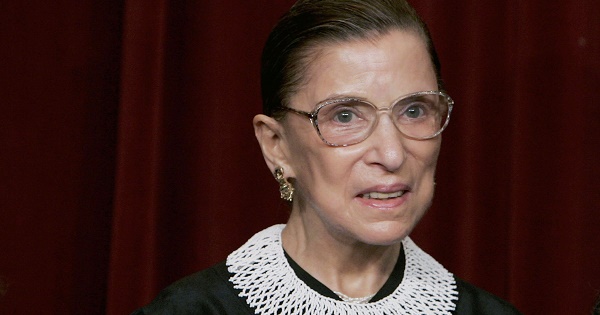Pro-gay justice Ruth Bader Ginsburg pays emotional tribute to friend and foe Antonin Scalia

US Supreme Court justice Ruth Bader Ginsburg has paid tribute to her professional foe and personal friend, Antonin Scalia.
Ultra-conservative Justice Scalia, who was a strong opponent of gay rights, passed away on Saturday from a suspected heart attack.
Across his long career, the justice has dissented against LGBT equality on nearly every issue – from the court decision throwing out sodomy laws, to the one bringing equal marriage. He also openly compared the rights of gay people to paedophiles and incestuous couples, and was known for his blistering dissents.
However, he was also renowned for his unlikely friendship with uber-liberal justice Ruth Bader Ginsburg, with whom he served (and frequently clashed) for nearly three decades.
Ginsburg has long supported equality, and attracted fury from conservatives for performing same-sex weddings herself ahead of last year’s court ruling.
Despite their polar opposite views in court and disagreement on nearly every case, the pair were also such good friends that an opera was even written about them, Scalia/Ginsburg.
In her statement, Ginsburg references the opera and its exploration of the pair’s friendship.
Read her tribute below:
Toward the end of the opera Scalia/Ginsburg, tenor Scalia and soprano Ginsburg sing a duet: ‘We are different, we are one,’ different in our interpretation of written texts, one in our reverence for the Constitution and the institution we serve.
From our years together at the D.C. Circuit, we were best buddies. We disagreed now and then, but when I wrote for the Court and received a Scalia dissent, the opinion ultimately released was notably better than my initial circulation.
Justice Scalia nailed all the weak spots—the ‘applesauce’ and ‘argle bargle’—and gave me just what I needed to strengthen the majority opinion.
He was a jurist of captivating brilliance and wit, with a rare talent to make even the most sober judge laugh. The press referred to his ‘energetic fervor,’ ‘astringent intellect,’ ‘peppery prose,’ ‘acumen,’ and ‘affability,’ all apt descriptions.
He was eminently quotable, his pungent opinions so clearly stated that his words never slipped from the reader’s grasp.
Justice Scalia once described as the peak of his days on the bench an evening at the Opera Ball when he joined two Washington National Opera tenors at the piano for a medley of songs.
He called it the famous Three Tenors performance. He was, indeed, a magnificent performer. It was my great good fortune to have known him as working colleague and treasured friend.

